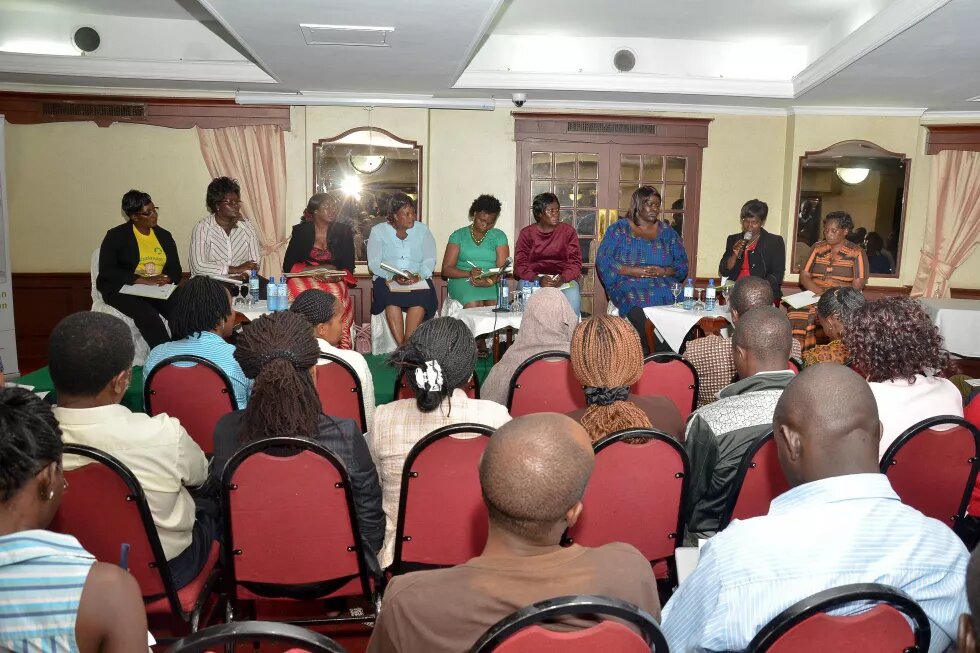
Kenya trails its neighbours in the region as far as women’s political leadership is concerned with a paltry 9.8% women representation in Parliament as compared to Uganda which stands at 35%, Tanzania 36%, Ethiopia 27.8%, and Rwanda the world’s leader in women’s representation at 56.3%. Indeed Kenya even lags behind Sudan which has been embroiled in civil war for decades which has 24.6 % women representation in the North and 26.5% in the youngest state, South Sudan.
The promulgation of a new Kenyan Constitution in August 2010 heralded a new dawn for the women of Kenya with the provision that not more than two thirds of elective or appointive positions should be of the same gender in addition to setting aside special seats for women. This paved the way for gender equity within leadership although a mechanism to actualize the two thirds provision in the Senate and National Assembly is yet to be found.
As much as it is important to have more women getting into leadership positions, countries which have reached the 30% threshold have raised concern that the numbers in themselves have not brought a change in women’s lives. Even in Kenya, it has been argued that women seem to join the “male mainstream” once they get into leadership positions and entirely forget the platform on which they rode to power, that of the women’s agenda. The sad reality is that most women aspiring to leadership positions seem to lack the capacity or an enabling environment to set an agenda that speaks to the needs of fellow women and/or to champion that agenda once they get into those positions.
As women push for a mechanism to actualize the two thirds provision, it is important to think not just about the quantity but also the quality of their leadership. In this regard, the gender forum this month sought to answer some of these questions:
- What is the agenda that women are bringing into leadership?
- Is it an agenda that can translate into a change in women’s lived realities?
- What is the connection between women’s access to leadership, having a sound agenda and remaining accountable to the women constituency?
In addition, The Kenya Women’s National Charter (English Version); Kiswahili Version) launched in January 2012 as an accountability tool was presented by Grace Mbugua, Executive Director of Women’s Empowerment Link (WEL).
The papers presented at the forum are available below:
- Engendering Leadership: Access, Agenda Setting and Accountability by Prof. Amb. Maria Nzomo (Institute of Diplomacy and International Studies, University of Nairobi)
- Accountability: The National Women’s Charter by Grace Mbugua, Executive Director of Women’s Empowerment Link (WEL)
The panelists: Prof. Amb. Maria Nzomo; Grace Mbugua, and Prof. Nyokabi Kamau (Gender Consultant)
Moderator: Dr. Joy Mueni (Lecturer: UoN, School of Economics)
More about women's political participation in Kenya:
2012


